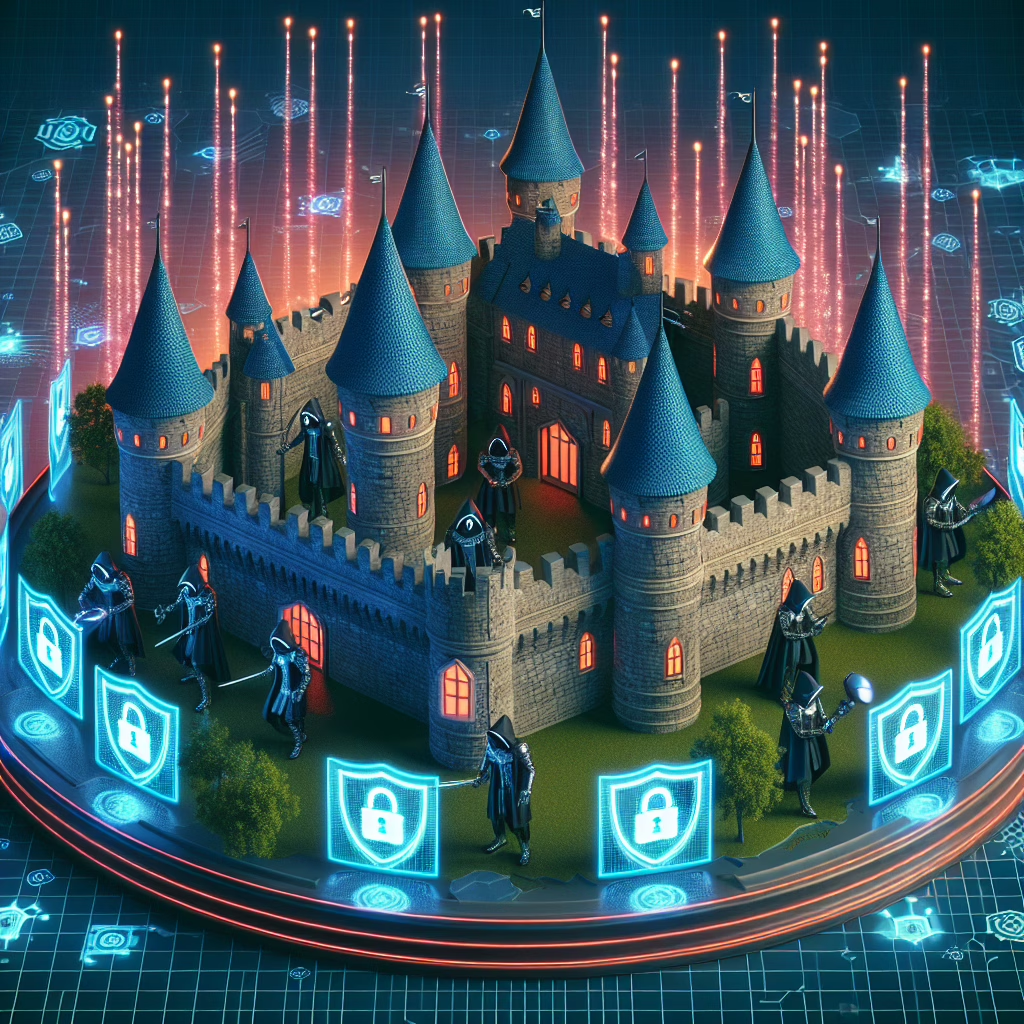In a world where hackers lurk behind every digital corner, protecting your data from both hackers and corporations feels like a modern-day quest for the Holy Grail. But fear not, dear reader! In this delightful romp through the wilds of cybersecurity, we’ll arm you with the knowledge to safeguard your precious information against those villainous data pirates.
Understanding Your Data: The Treasure Map
First, let’s talk about what data actually is. Think of your personal information as the crown jewels of your digital kingdom. From social media posts to online shopping habits, every byte of data contributes to a grand tapestry that companies like to weave for their marketing strategies. And yes, these corporations are looking at you like a kid in a candy store—ready to snatch up whatever treats they can find!
To protect your data from hackers and corporations alike, you must first understand what you’re dealing with. Are you storing sensitive information like passwords and bank details? Or is it just an embarrassing collection of cat memes? Either way, knowing what’s at stake is half the battle.
Passwords: Your First Line of Defense
If passwords were superheroes, they’d be Batman: dark, mysterious, and often misunderstood. A strong password is your first line of defense against unauthorized access. Aim for at least 12 characters with a delightful mix of uppercase letters, lowercase letters, numbers, and symbols. It’s like creating a secret code that even your best friend couldn’t guess (sorry, Linda!).
Pro tip: Avoid using easily guessed passwords like “password123” or your pet’s name—unless your pet’s name is “TheGreatSphinxOfGiza.” Consider using a password manager for extra security; they can create unique passwords for each account faster than you can say “data breach.”
Two-Factor Authentication: Your Sidekick
If passwords are Batman, then two-factor authentication (2FA) is Robin—helpful, reliable, and always by your side when danger strikes. With 2FA enabled, logging in requires not only your password but also a second piece of information—like a code sent to your phone or an authentication app.
This additional layer of security acts as a moat around your digital castle. Even if hackers manage to steal your password (the digital equivalent of scaling the walls), they still need that second factor to breach your fortress!
Beware the Phishing Hooks!
Ahoy! Phishing scams are like fishing hooks baited with shiny emails enticing you to click on links that could lead straight to Davy Jones’ locker (or worse, malware). Always be cautious about emails or messages from unknown senders asking for personal information. If it smells fishy, it probably is!
When in doubt, go directly to the source. Instead of clicking links in emails, type the website address into your browser yourself. This simple act can save you from swimming with the cyber-sharks!
Your Digital Footprint: Leave No Trace
Your online presence is akin to leaving breadcrumbs across the Internet forest. Each post, like, and share contributes to a trail that can be followed by anyone—from friendly marketers to malicious hackers. To protect your data from corporations eager to gather every crumb:
- Review privacy settings on social media platforms.
- Limit the amount of personal information shared publicly.
- Regularly audit your online accounts and delete those you no longer use.
By being proactive about your digital footprint, you make it harder for those pesky corporations to track you down like an overzealous bloodhound.
Secure Your Devices: Fortify Your Castle
Your devices are gateways to your personal kingdom; thus, securing them is paramount! Ensure all software is updated regularly—this includes operating systems and applications—as updates often contain crucial security patches.
Also, consider installing antivirus software (like hiring a guard dog) to help detect and eliminate potential threats before they can invade your castle walls. Remember: A well-maintained device is far less likely to fall prey to cybercriminals.
The Power of Encryption: The Secret Language
Encryption transforms your readable data into gobbledygook that only those with the right key can decipher—think of it as using a secret language. Many services offer encryption features for emails and files. By utilizing these tools, even if hackers intercept your data during transmission, they’ll be left scratching their heads instead of celebrating their victory.
Staying Informed: Knowledge is Power!
The cyber world changes rapidly; new threats emerge while old ones evolve. Staying informed about the latest cybersecurity trends can give you an edge in protecting yourself against hackers and corporations who might want access to your data.
Consider subscribing to cybersecurity blogs or newsletters (hey, maybe even this one!) so you’re always one step ahead of those dastardly foes.
Conclusion: Join the Fight Against Data Breaches!
Your data deserves protection worthy of royalty! By following these tips and remaining vigilant against hackers and corporations alike, you’ll fortify your defenses like a true cybersecurity knight. Remember, every little action counts in this ongoing battle for privacy and security.
What strategies do you use to protect yourself online? Share your thoughts in the comments below!
A special thanks to Wired for inspiring this article with their insightful guide on protecting data from hackers and corporations!
For more information, check out our related articles: This is the perfect SSD for spies, The US Is Building a One-Stop Shop for Buying Your Data, and Login and password details for Apple, Google and Meta accounts found in huge data breach of 184 million accounts.

